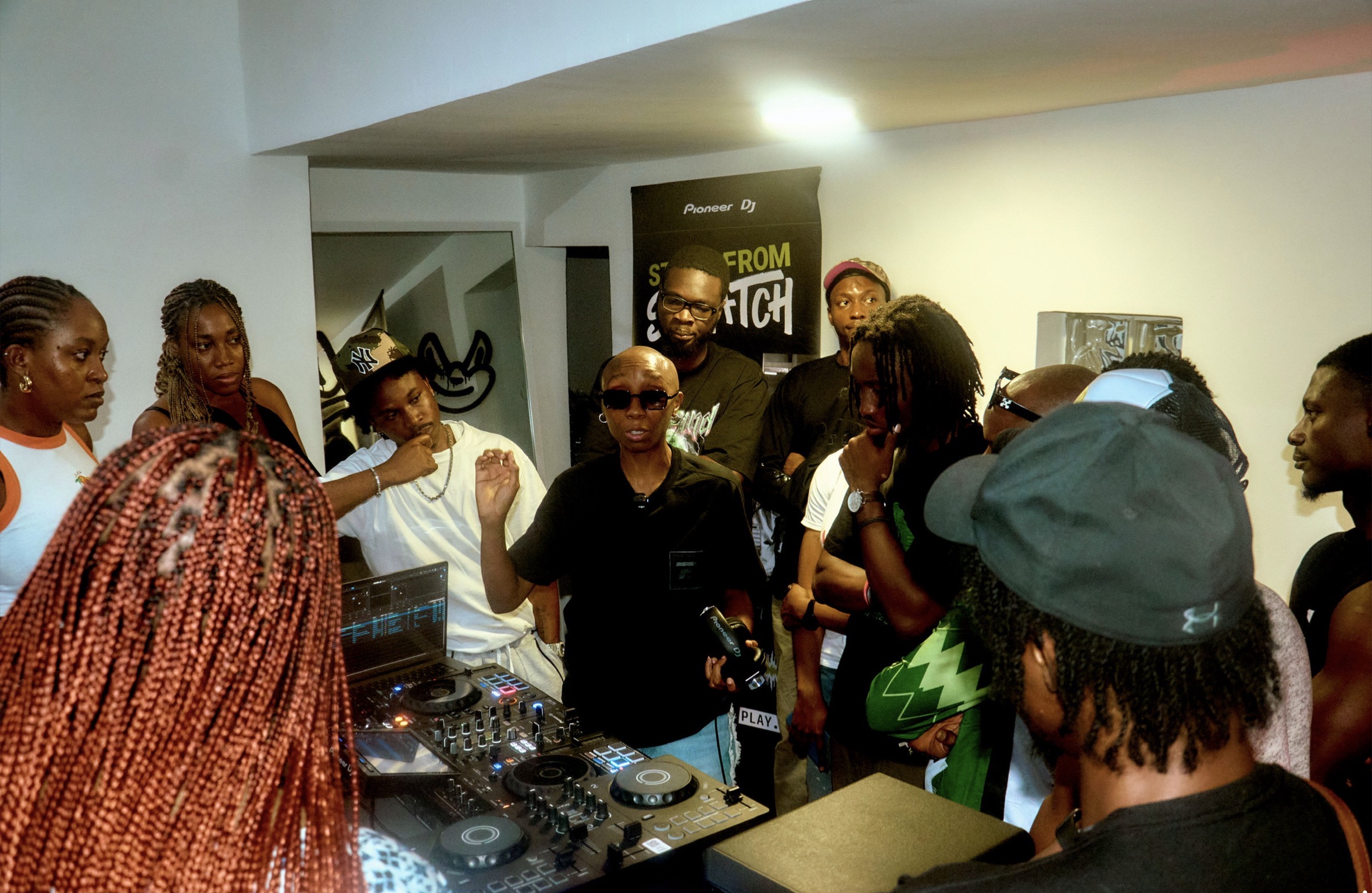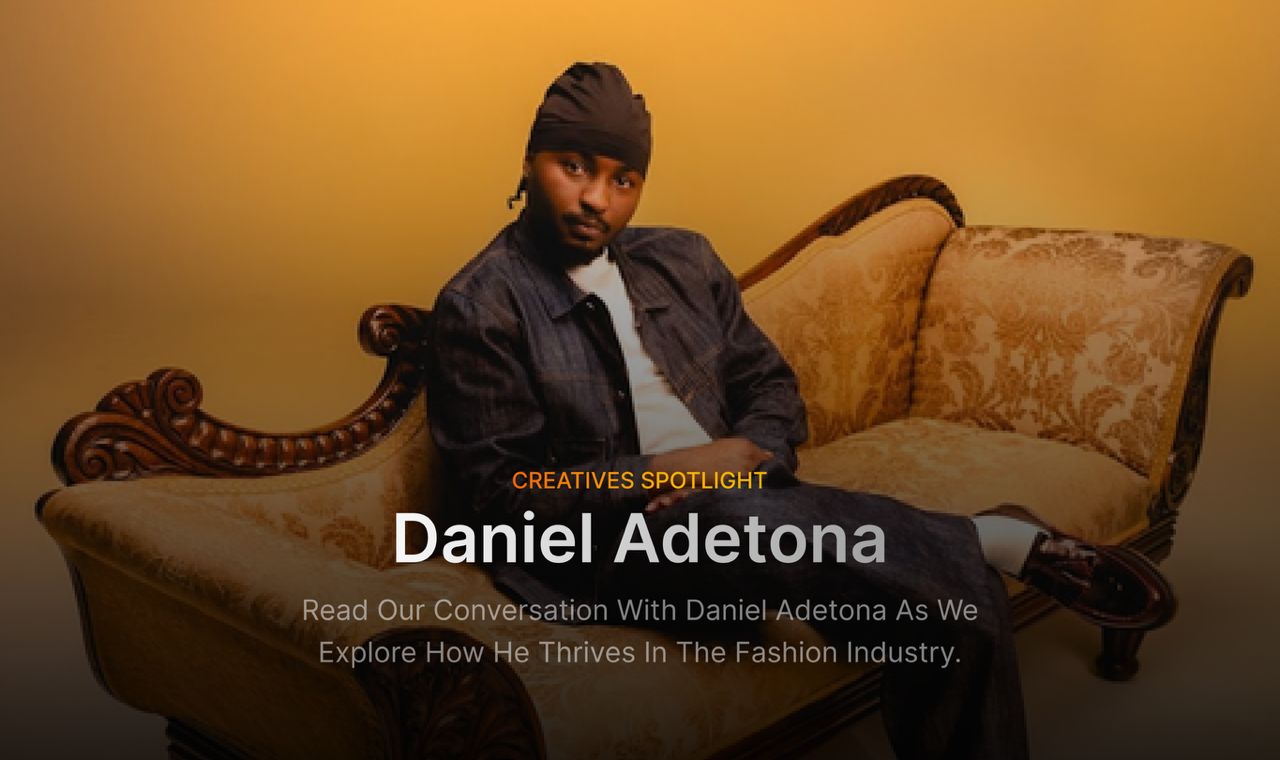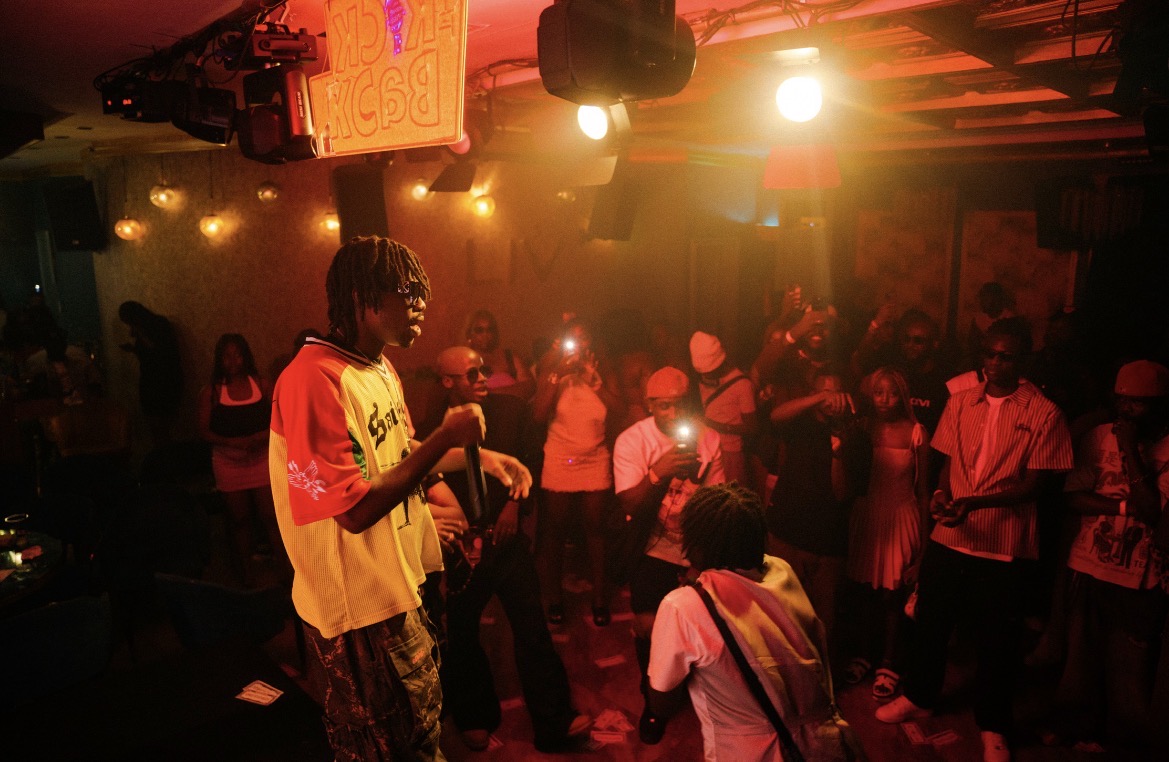In 2019, Amanda Umobi was a graduate of law in NYSC camp, she was also a beginner reader with time on her hands. An unfortunate incident involving a power outage and a dead phone battery led Amanda down the path of selling books. Now, she’s a lawyer and a bookseller with plans for more.
If you could describe yourself in one sentence, what would that sentence be?
Amanda: In one sentence, I would say I’m very versatile and adaptive. Yeah, those are the two words that come to my mind.
How does that translate into who you are and the work that you do?
Amanda: Asides from being a bookseller, I’m a lawyer, I’ve been to law school, finished law school and the book-selling thing was an idea that came up just after NYSC and you know at that point after NYSC, there’s so much uncertainty and I think I was really able to adapt to the situation I found myself in and started selling something that I liked and that was good in terms of a business idea. And even asides that, I do a lot of other things on the side as well
And versatile in terms of I can pick up things really quickly. Even in my native profession, I’ve worked around different areas of Law and I have also been really able to show my versatility in terms of that. So yeah, I hope that answers that
Yes, it does. A lawyer and a businesswoman. A multitasking queen that we stan
Amanda: We stan. Well, she’s dying so because it’s much, lol but yeah, we stan.
So going off of that, what made you start selling books? I know you said it was after NYSC but when did you start and was it something you just like stumbled into or you were like you know, “I’m looking for something to do, why don’t I just start selling books?” How did that decision come about?
Amanda: Well, it’s a funny one. I’ve always been a reader, even for the longest time. I think it was the eve of the New year, 2019. I read books on a normal day and I stumbled on African literature, just when I’d got back to Nigeria and I was like, “Okay African literature, I’m liking this,” and I started reading first before I started selling.
Most of the books I had were on my phone actually because they were mostly eBooks, and I remember that fateful day, my phone battery was dead and normal Nigeria, there was no light, I don’t know what happened, there was no fuel on the generator and my laptop wasn’t working, or my laptop was dead. I was just like, “wait, so I’m just here suffering?”. This book I’m reading I can’t even finish it because there’s no light, and then I just kept complaining
Then the idea just came up, that why don’t I just look for these books and sell them? I mean I knew I didn’t want to buy for my personal keeping, but you can buy and sell. So that was where I had the first idea and then I started doing some research into the whole African literary business and if there were other African booksellers that focused on– because I only sell African literature or books by African writers rather.
I did my research and saw some African booksellers and I was like, okay, this is something I don’t mind doing. And then I think 6 months or thereabouts, from the first day of January, was when I started to sell formally online. So that’s my story.
From NEPA?
Amanda: Yeah. Nigerian power supply influenced my decision
Well, we can always give them thanks for that one. One good thing. You said you’re also a lawyer. Is it something that you see yourself doing for a long time? Selling books that is.
Amanda: Yes actually. It’s something that I would to– well I wouldn’t say selling books per se but I would really like to expand. The plan for Justread, which is the name of the business, is to eventually be metamorphosed into book publishing, and coaching, I would like to have a system where we are able to quote writers and also a live read system. It’s something that I would really love to do for a long time, yes.
And how does Law come into play for this?
Amanda: I say to people who ask me, “Is this my getaway from Law?” because whenever I do Law, I do financial Law and stuff.
Funds, wow
Amanda: Lol, amen. Let it start showing in my account. The book thing is just something that takes my mind away from other legal stuff. I mean, people say the IP perspective, the intellectual property. I did that and then during NYSC, that’s probably one of the things that influenced my decision really. I did a lot of IP work during NYSC so I can see the relationship between Intellectual property and copyright and trademark and all that. And writing books, because, as a writer, you would want your creation to be protected. So that also allows me to really play in both spaces.
You might be getting away from Law but Law isn’t getting away from you
Amanda: My dear, Law is not getting away from me at all.
What’s the hardest thing about running this kind of business?
Amanda: Okay. The hardest thing is getting people to read. I mean, it’s African literature and one thing I’ve noticed is that when you talk about it, a lot of people don’t know that African writers are doing marvellously well in the literary space. You have to really educate and tell me that we’ve moved past John Grisham and the likes. We have our own writers now. We have El Nathon John; we have Nnedi Okoroafor; people read more of those books now.
I think it’s more making people realise that it’s just– okay, for instance, Afrobeats, when it started and when we were listening to Nigerian music, a lot of people were like, “I don’t really listen to Nigerian music. I prefer Lil Wayne or Drake” but now, you see that everybody wants to get on this Afrobeats wave.
People had to educate others that African musicians are doing it and I think that’s the stage that African literature is; that we’re trying to educate people to make them understand that African writers and phenomenal. And I also believe that with Afrobeats, with really focusing the spotlight on Africa, Nigeria and all the other beautiful countries, it can also take advantage of that, the literary space can also tap into that attention right now. And also, Bollywood, as it were.
For me, it has been really challenging letting people know that African literature is what I do, it’s what I sell, and I don’t sell motivational books by all the other motivational writers, no. It’s African literature and this is what I want to stick to, and that’s it for me
Yeah, I get that. I think like at times, a lot of us that read African books are traumatized, we’re wearier because if you want to read an African book and you decide that you’re going to pick the most popular one, it’s usually a lot of trauma porn, like you know, suffering suffering up and down. As good as those stories are, sometimes that’s not what you want to read to be very honest.
Amanda: Yeah. And I feel like about that, that’s what it is, and I understand the traumatising part and it’s good to know that African literature has moved past that. We have– I don’t know if you’ve read Secret Lives?
I love that book. Secret Lives and all the Men in Lagos are very good
Amanda: Exactly. Secret Lives is one of the books I started reading, what is this goodness? And then the next one I read was Born on a Tuesday and I think that really blew my mind. I think that was where I was like, “Hold on, what is going on that nobody is talking about here?”.
We’ve definitely moved past the traumatic part of the woman cooking food or killing herself and her kids, no we’ve moved past that
Thankfully, we have. How do you think the catalyst for how African literature has transformed from the drama point to what we have now? There’s been a noticeable shift in the type of stories being told. It’s like everyone just suddenly decided one day that, you know what, we’re going to tell the stories that matter and not just writing what people want to read. What are the factors that you think influenced that shift in the industry?
Amanda: Well, I can’t really speak for writers, but I would say that a lot of these writers are really writing based on their experiences or based on how they feel. And as you have said, a lot of them have been through that traumatic phase where African literature was just a traumatic reading process, so for me I believe that a lot of people are beginning to look into their experiences m, look into their background, look into their environment; people are looking around them and seeing so many things to write about
Like there’s this book, Lagos Noir, that captured quite a number of writers, coming together to write in the Lagos experience. I can’t speak for all the writers, but what I’ve noticed is that people are looking around them, people are looking at their history, people are looking at their background and people are telling their stories from those points of view. People are no longer sitting down there to come up with or compose something that they know will not be interesting to the average reader.
Like you mentioned, Nearly all the men in Lagos are mad. Now that book is based on Lagos men, so I’m sure Damilare Kuku looked at her experience, Lagos state, what happens in Lagos and come up with something that’s going to be like that. So, I think that writers and beginning to understand that we want to read more about what they have to say about Africa, not really what has been said already or what has been written already. People want to read something new about Nigeria, about Kenya – I do sell some Kenya books, and even South Africa– people want to read their stories and I think that’s why people are trying to write more about the stories that are really happening and not about what’s happened in the past
African writers are finding their voice…
Amanda: Exactly. They’re finding their voice, and they’re very confident, very confident. We have a lot of writers winning awards, including the Booker Awards. I mean, Chinua Achebe set the pace, and then Chimamanda.
Who are your favourite Nigerian authors, and who are your favourite African authors?
Amanda: My favourite Nigerian author is, well, I don’t even have one. Soyinka maybe. The woman that wrote the I love Elton John because he’s very controversial. I love controversial people. There are so many though.
Jumoke Verissimo is another one I really love. There’s this Kenyan writer that I was in love with that year. Nana Darkoa Sekyiamah, I love her book The sex lives of African Women, I think it’s kind of new. You know the book?
I know the book but I haven’t read it yet.
Amanda: Yes, that’s a good one as well. I haven’t even started it but we’re working on that.
I understand the problem of never being able to choose one writer you like so yeah it’s okay. It’s allowed. So, are there certain books you gravitate towards buying for selling?
Amanda: Oh yeah, definitely. I call them the classics. Those are the ones I never go wrong with recommending to new-time readers. I usually introduce people to African literature with those books, and Secret Lives happens to be the first one from the list. That’s one of the top one on the list. Chimamanda too, but sometimes not necessarily

Yeah. Americanah and the works
Amanda: Well you know, growing up, those are the books that we really really read back I’m school so a lot of people who want to read African literature, most times they have read those books and they want something away from that. I don’t want to be that person that gives you Americana when I know that you have read it a couple of years ago. I want to introduce you to something new
Most times, it has to be Secret Lives, because I know I always recommend Secret Lives. And then also How to be a Nigerian by Peter Enahoro, people enjoy that read as well. And then there’s ‘My sister, the serial killer’.
That’s one of them too, it’s quite popular. And then I always try to stick to Chinua Achebe’s Things Fall Apart.
People that it’s always guaranteed to have readers come back for more
Amanda: Yeah. It’s always guaranteed that people would enjoy their books. Oh yes, and I forgot to mention Stephanie Okoronkwo as well. And yeah It’s always a hit and that’s why I like to recommend them
Very nice. I will come and buy, when I have money, plenty money
Amanda: Well you can always check us out online, you know we’re on Instagram, we don’t really have a physical book store but what I try to do is– because it’s really hard trying to get Nigerians to read is that they’re always like, oh they like to read motivational books or books about business. A strategy we adopted at the beginning of the year was collaborating with cafes. I think now we just have like two cafes that are key into the whole arrangements, they have bookshelves and they sell food or something that you can eat like, they don’t really sell pounded yam or jollof rice like that
They sell like pastries and all of that
Amanda: Yeah, exactly, they sell pastries, tea, and coffee and then you can pick a book, look at it and if you like it, you can pay for it right there on the spot. We’ve collaborated with Milkshop in Maitama and Mamba cafe.
So what we try to do is, I try to create different books for different atmospheres and different vibes. In Milkshop, we have more traditional African literature, and storytelling because it’s a workspace; you can work there, you can eat there and so I try to keep it more literature, more storytelling intensive
But what we have in Mamba Cafe, being that they do arts, they do crafts, they do some kind of collaboration and events with some architects society or association, so the books that we have there are more African history, African architecture, African textile and stuff like that and that’s how we try to different both cafes and what they’re offering in terms of their books as well. So yeah
So you’re creating an experience
Amanda: Yes. I’m trying to create an experience in two different places
Nice, very nice. So I think this is one of my last questions. With the absence of Netflix Nigeria, we’ve started seeing lots of people, I think they’re adapting Baba Segi’s Wives into a series, how do you think that’s going to affect the Nigerian/African literary space? Like this adaption of books into something for cinema and film, how do you think it’s going to affect the Nigerian literary space?
Amanda: I feel like it’s going to have a positive impact, because these books, quite a number people have already read the book that will obviously be adapted by Netflix or HBO and it just showcases the example of how I was trying to say that Afrobeat is bringing that spotlight to Africa. So then adapting or them making a movie out of these books, will definitely attract the spotlight to African writers because they are so– like I’ve seen so many books that if they were in movies, they would blow minds.
Yeah
Amanda: If we start somewhere and we’re able to make people understand that this book was written by a Nigerian author, the name of the book is this, this is the name of the publishers, and then you go and you see that the books are still around that space, we would have more people interested in what Africa has to say in their books. I definitely support it and I know that there are other books in the world and that’re created into movies and didn’t take the spotlight from the book itself. There’s this book, My Rich Crazy– is that the name of the book?
Crazy Rich Asians?
Exactly, that’s the name. And then To all the boys I’ve loved before. So yeah, I’m not really sure what happened with both of them but I think they were books first? I’ve never even watched the movie but then because of the for the movie, I wanted to read the books first. And that’s a strategy that if we use it right, it would just be an advantage to the literary space at the end of the day
Yes, that’s “if we use it right” is very very key
Amanda: Yeah, lol. It’s very key right? Yeah, I agree
That’s all the questions I have for you. Do you have anything to add or anything to say?
Amanda: I think you’re doing a pretty good job; thank you for having me
It was a pleasure.





